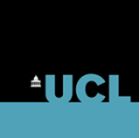If the chief rules of good design were understood by the masses as they might be, nothing would do more to promote beauty, improve workmanship, add to the value of manufactures, and in many other ways further the general welfare and prosperity of the country. They are simple, easy to acquire, and should be taught with the alphabet.
Ernest Flagg, Small Houses: Their Economic Design and Construction (1922)

